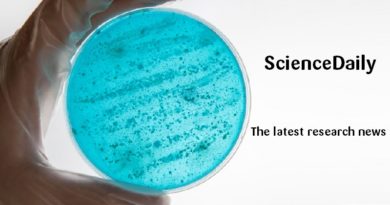Men’s health
- Prostate cancer statistics can look scary: 34,250 U.S. deaths in 2024. 1.4 million new cases worldwide in 2022.
- Researchers used a double-pronged approach to reduce tumor growth in tissue samples of prostate cancer.
- Scientists have uncovered new genetic clues that explain why some prostate cancers remain slow-growing while others become life-threatening.
- Researchers have discovered a new mechanism that is used by a male sex hormone essential for muscle and bone function. The findings could lead to the development of new drugs with fewer side effects, for use in applications such as strengthening the muscles of immobile patients.
- The incidence of advanced prostate cancer in California rose markedly in the decade since doctors stopped routinely screening all men for the disease, according to a new study.
- Men undergoing radiation therapy for prostate cancer who experience side effects early in treatment may face a higher risk of developing more serious long-term urinary and bowel health issues, according to a new study.
- The inherited mutated gene WNT9B, which functions normally in embryonic prostate development, increases risk of adult prostate cancer, according to a new study.
- In April 2021, a provision in the 21st Century Cures act took effect which required that all medical test results be released to a patient's electronic medical record as soon as they become available. As a result of this newer law, many patients are seeing and reading their test results even before their doctor has. […]
- A new study has found that many cases of high-risk nonmetastatic hormone-sensitive prostate cancer may be more advanced than previously thought.
- There are several strategies for the early detection of prostate cancer. The first step is often a blood test for prostate-specific antigen (PSA). If PSA levels exceed a certain threshold, the next step typically involves taking a tissue sample for analysis. Another option is to use magnetic resonance imaging (MRI) to search for signs of […]



